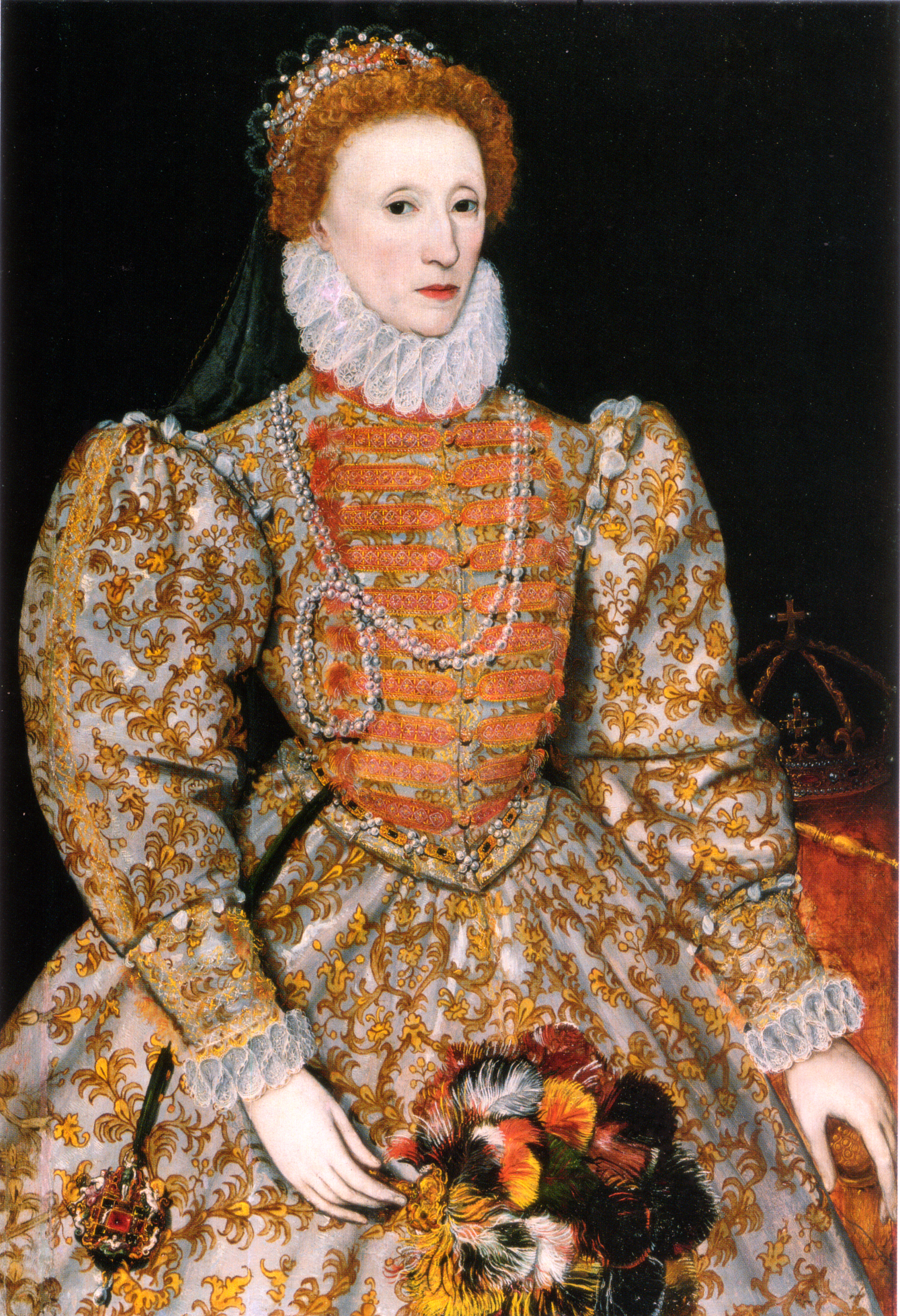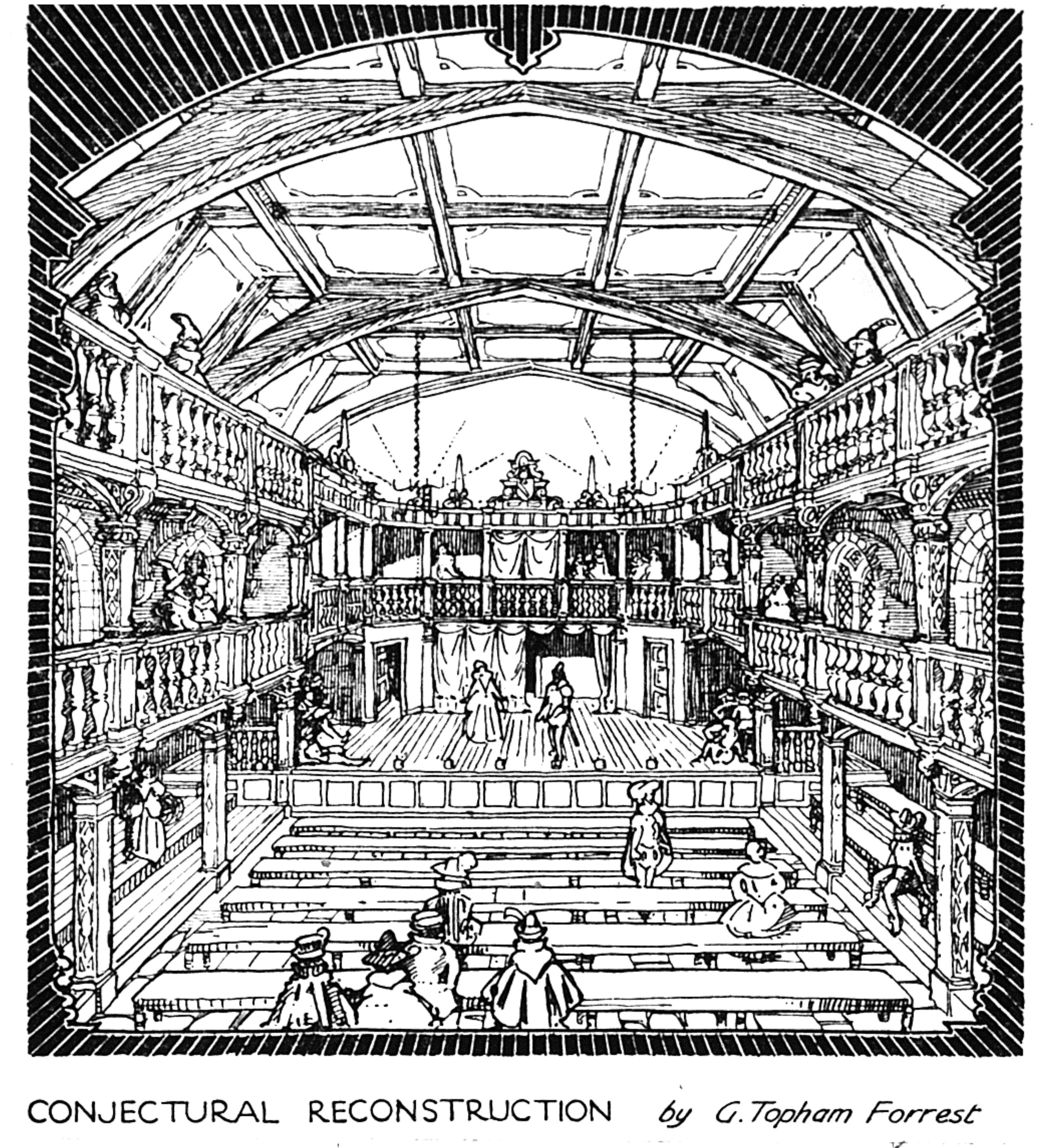Richard Farrant on:
[Wikipedia]
[Google]
[Amazon]
Richard Farrant (c. 1525 – 30 November 1580) was an
 As a member of the Gentleman of the Chapel Royal, Farrant was active in ceremonies surrounding the royal family. He began his work with the Chapel Royal around 1550 under the reign of
As a member of the Gentleman of the Chapel Royal, Farrant was active in ceremonies surrounding the royal family. He began his work with the Chapel Royal around 1550 under the reign of
 Unlike many composers of his day that stuck to only music composition, Farrant also wrote many plays. One of his most important contributions to drama in England is of course the creation of the first
Unlike many composers of his day that stuck to only music composition, Farrant also wrote many plays. One of his most important contributions to drama in England is of course the creation of the first
English
English usually refers to:
* English language
* English people
English may also refer to:
Peoples, culture, and language
* ''English'', an adjective for something of, from, or related to England
** English national ide ...
composer, musical dramatist, theater founder, and Master of the Children of the Chapel Royal
The Master of the Children of the Chapel Royal was the choirmaster of the Chapel Royal of England. They were responsible for the musical direction of the choir, which consisted of the Gentlemen of the Chapel and Children of the Chapel. In some per ...
. The first acknowledgment of him is in a list of the Gentlemen of the Chapel Royal in 1552. The year of his birth cannot be accurately determined. During his life he was able to establish himself as a successful composer, develop the English drama considerably, found the first Blackfriars Theatre
Blackfriars Theatre was the name given to two separate theatres located in the former Blackfriars Dominican priory in the City of London during the Renaissance. The first theatre began as a venue for the Children of the Chapel Royal, child ac ...
, and be the first to write verse-anthems. He married Anne Bower, daughter of Richard Bower who was Master of the Chapel Royal choristers at the time. With Anne he conceived ten children, one of whom was also named Richard.
Work with Royalty
 As a member of the Gentleman of the Chapel Royal, Farrant was active in ceremonies surrounding the royal family. He began his work with the Chapel Royal around 1550 under the reign of
As a member of the Gentleman of the Chapel Royal, Farrant was active in ceremonies surrounding the royal family. He began his work with the Chapel Royal around 1550 under the reign of Edward VI
Edward VI (12 October 1537 – 6 July 1553) was King of England and Ireland from 28 January 1547 until his death in 1553. He was crowned on 20 February 1547 at the age of nine. Edward was the son of Henry VIII and Jane Seymour and the first E ...
. Fortunately, for Farrant, this is a time that saw huge developments in Latin Church Music. Composers like William Byrd
William Byrd (; 4 July 1623) was an English composer of late Renaissance music. Considered among the greatest composers of the Renaissance, he had a profound influence on composers both from his native England and those on the continent. He ...
and Christopher Tye
Christopher Tye (c.1505 – before 1573) was an English Renaissance composer and organist. Probably born in Cambridgeshire, he trained at the University of Cambridge and became the master of the choir at Ely Cathedral. He is noted as the music ...
were busy expanding and elaborating on the Church Music of the day. In Farrant's twelve years with the Chapel Royal, he was able to participate in funerals for Edward VI and Mary I
Mary I (18 February 1516 – 17 November 1558), also known as Mary Tudor, and as "Bloody Mary" by her Protestant opponents, was Queen of England and Ireland from July 1553 and Queen of Spain from January 1556 until her death in 1558. She ...
, and coronations for Mary I and Elizabeth I
Elizabeth I (7 September 153324 March 1603) was List of English monarchs, Queen of England and List of Irish monarchs, Ireland from 17 November 1558 until her death in 1603. Elizabeth was the last of the five House of Tudor monarchs and is ...
. After his work there, he took up a post as lay vicar and organist at St. George's Chapel at Windsor.
Postings
For Farrant, the post atWindsor
Windsor may refer to:
Places Australia
* Windsor, New South Wales
** Municipality of Windsor, a former local government area
* Windsor, Queensland, a suburb of Brisbane, Queensland
**Shire of Windsor, a former local government authority around Wi ...
became a permanent one that he retained for the rest of his life. Along with this, he also acquired the position of Master of the Chapel Royal choristers in November 1569. Having the choirs of both of these institutions at his disposal gave him an outlet to showcase all of his compositions and plays. In fact, every winter he was able to produce a play for the Queen herself. These positions also allowed him to move back to London in 1576 and begin a public theater of sorts where he rehearsed some of his choir music openly. It was soon after, in 1580, that he died, having left his house to his wife.
Important contributions
 Unlike many composers of his day that stuck to only music composition, Farrant also wrote many plays. One of his most important contributions to drama in England is of course the creation of the first
Unlike many composers of his day that stuck to only music composition, Farrant also wrote many plays. One of his most important contributions to drama in England is of course the creation of the first Blackfriars Theatre
Blackfriars Theatre was the name given to two separate theatres located in the former Blackfriars Dominican priory in the City of London during the Renaissance. The first theatre began as a venue for the Children of the Chapel Royal, child ac ...
. This eventually became one of the most important places in London for drama to develop during the Renaissance. Farrant is also one of the earliest and most well known composers that began to mix the two mediums of music and drama. It was this uncommon mixture that allowed him to begin to develop the composition style of 'verse.' This becomes prominent in a lot of his pieces including the anthems ''When as we sat in Babylon'', ''Call to remembrance'' and ''Hide not thou thy face''.
Works
Because of the time gap, many of Farrant's works are only known because of careful documentation or brief mention from other documents.Huray and Morehen, "Farrant, Richard," In Grove Music Online.Compositions
*Ah, alas, You Salt Sea Gods (included in the Dow Partbooks) *Call to Remembrance *Hide Not Thou Thy Face *Lord, for Thy Tender Mercy's Sake *Magnificat & Nunc Dimittis *O Jove, from Stately Throne *O Sacrum Convivium *Single Chant in F Major *Felix Namque *VoluntaryeDramatic works
*Ajax and Ulysses *Quintus Fabius *The History of Mutius Scevola *Xerxes *The History of Loyaltie and Bewtie *The History of Alucius *Orestes *Panthea and AbradatasReferences
External links
* * {{DEFAULTSORT:Farrant, Richard 1525 births 1580 deaths Renaissance composers English classical composers English classical organists British male organists Gentlemen of the Chapel Royal 16th-century English composers 16th-century English musicians English male classical composers Masters of the Children of the Chapel Royal Male classical organists